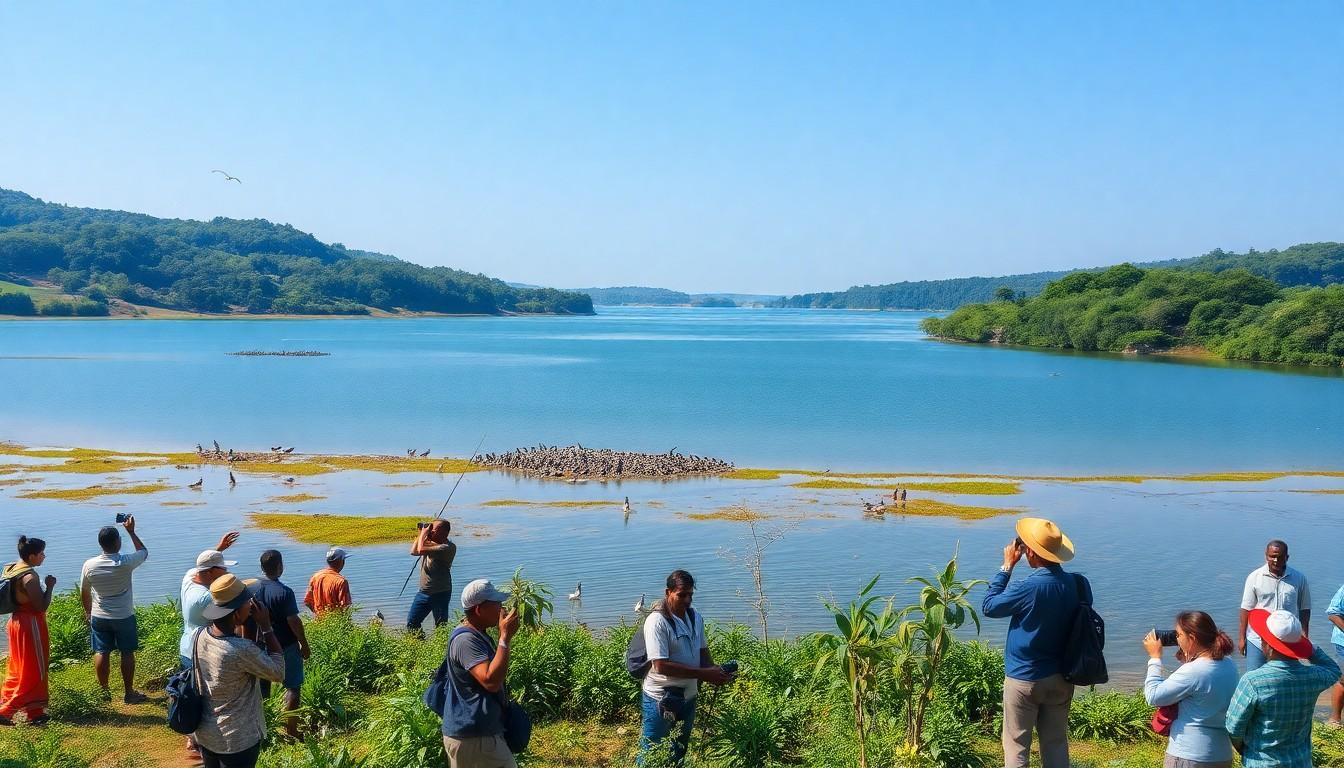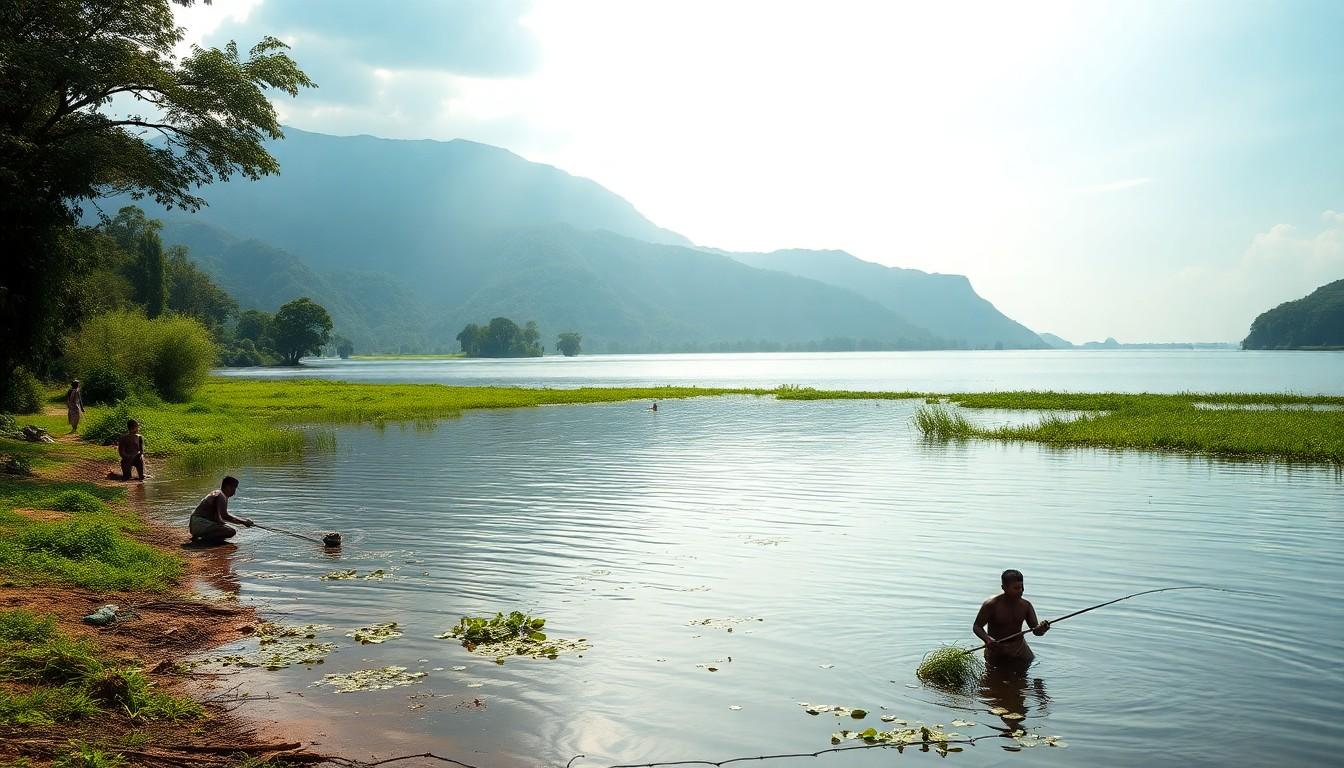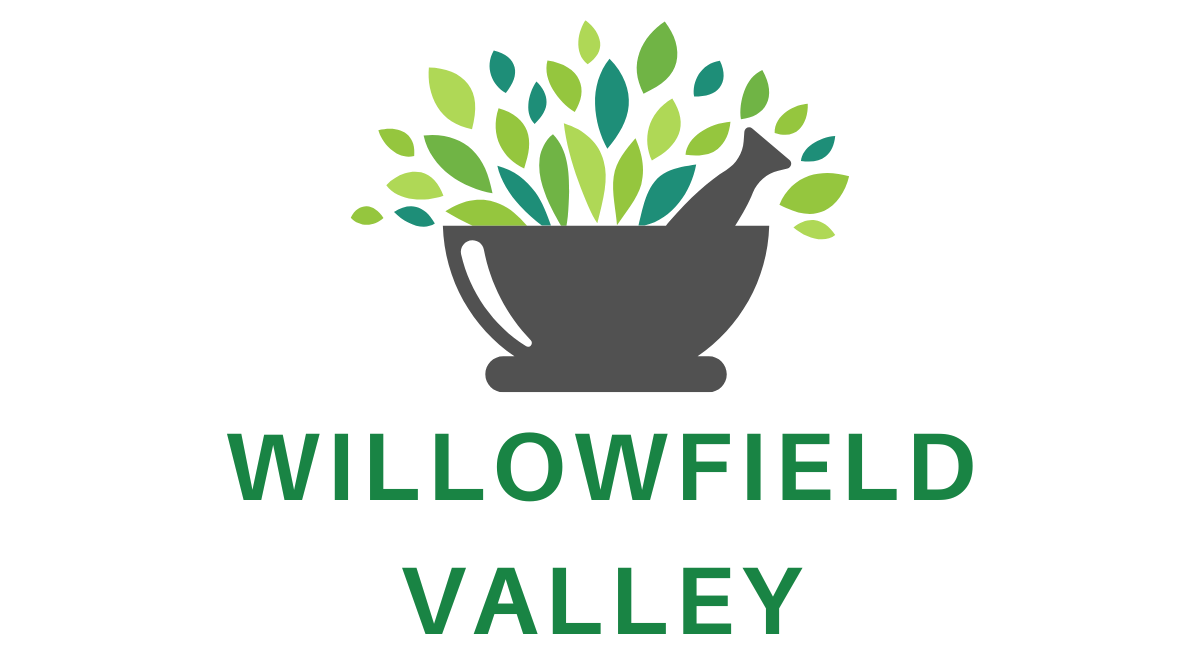The Best Fluffy Pancakes recipe you will fall in love with. Full of tips and tricks to help you make the best pancakes.

Why Is Lake Faticalawi Important? Discover Its Hidden Ecological and Cultural Treasures
Nestled in the heart of nature, Lake Faticalawi isn’t just a pretty face; it’s a vital ecosystem that deserves a standing ovation. This shimmering body of water plays a crucial role in supporting local wildlife and maintaining the region’s delicate balance. Without it, the area’s flora and fauna would likely throw a tantrum worthy of a toddler missing their nap.
But that’s not all—Lake Faticalawi is also a hub for recreation and tourism. From fishing enthusiasts to nature lovers, it offers a playground for all. Imagine casting your line in tranquil waters or snapping that perfect Instagram shot with a stunning backdrop. Discovering why Lake Faticalawi is important isn’t just a matter of environmental concern; it’s about embracing a treasure that brings joy and sustenance to both people and wildlife alike.
Importance of Lake Faticalawi
Lake Faticalawi plays a crucial role in sustaining local ecosystems, with impacts seen in wildlife habitats and recreational activities. Recognizing its importance prompts appreciation for its natural beauty and resources.
Ecological Significance
Ecological systems thrive around Lake Faticalawi, making it a cornerstone for maintaining environmental balance. This lake supports water purification processes, reduces flooding risks, and replenishes groundwater supplies. Many species depend on its waters for survival, demonstrating the interconnectedness of flora and fauna. Groundwater recharge rates in the area enhance agricultural productivity, benefiting local communities. Protecting this vital ecosystem requires collective efforts to ensure its health for future generations.
Biodiversity and Wildlife
Biodiversity flourishes in and around Lake Faticalawi, hosting numerous species of plants and animals. Various fish species populate its waters, providing a sustainable food source and attracting anglers. Bird populations depend on the lake for nesting and migration, enriching the local scenery. Various amphibians and insects thrive in this habitat, contributing to the overall ecological dynamic. Efforts to preserve this biodiversity enhance not only the environment but also eco-tourism opportunities and scientific research.
Cultural Relevance

Lake Faticalawi holds significant cultural importance for local communities. Its presence shapes traditions, beliefs, and lifestyle practices vital to the area.
Historical Context
Historical significance surrounds Lake Faticalawi. Many stories and legends have emerged from its shores, reflecting deep-rooted connections to the land. Various artifacts found near the lake reveal the presence of ancient civilizations. These communities utilized the lake’s resources for sustenance and trade, marking it as a focal point in their daily lives. Accounts of gatherings, rituals, and celebrations highlight the lake’s role in fostering community identity. Such narratives passed down through generations continue to shape the cultural landscape today.
Indigenous Communities
Indigenous communities greatly value Lake Faticalawi. They rely on the lake’s resources for daily living, particularly fishing and gathering plants. Spiritual beliefs often align with the lake, leading to practices that honor the ecosystem. Rituals celebrating the water and wildlife reinforce the community’s connection to nature. Additionally, traditional knowledge guides sustainable practices in utilizing resources. The lake serves as a communal gathering space, strengthening bonds among community members. Through storytelling and cultural activities, these communities preserve their heritage linked to Lake Faticalawi.
Economic Impact
Lake Faticalawi significantly influences the regional economy, providing various opportunities for local communities to thrive.
Tourism Opportunities
Tourism around Lake Faticalawi flourishes, attracting visitors seeking outdoor adventures. Activities such as bird watching, hiking, and photography draw nature enthusiasts who appreciate the lake’s beauty. Local businesses benefit from increased foot traffic, leading to higher revenues for service providers like hotels, restaurants, and shops. Tourists contribute to the economy through spending on recreational activities, enhancing community income. Conservation efforts aimed at preserving the lake attract eco-tourists, promoting sustainable practices that further stimulate economic growth. These initiatives foster a sense of stewardship and community engagement among residents, ensuring that the lake remains a cherished destination.
Fisheries and Local Economy
Fisheries play a vital role in Lake Faticalawi’s local economy. The lake supports diverse fish populations, providing a sustainable food source for nearby communities. Fishermen depend on the lake for their livelihoods, with many families relying on fishing as their primary income. Local markets benefit from this activity, as fresh fish creates a steady supply for residents and visitors alike. Sustainable fishing practices ensure the long-term viability of this resource, contributing to food security. Engaging in community-based management keeps fishing activities balanced while reinforcing local culture tied to fishing traditions. This economic activity strengthens community ties and promotes responsible stewardship of the lake’s resources.
Environmental Challenges
Lake Faticalawi faces several environmental challenges that impact its ecosystem and the surrounding communities. Pollution significantly threatens water quality, affecting both wildlife and human health. Agricultural runoff introduces fertilizers and pesticides, leading to nutrient overloading, which causes harmful algal blooms. These blooms deplete oxygen levels, negatively impacting fish populations and other aquatic species. Plastic waste also accumulates in the lake, further degrading the environment.
Conservation efforts are essential to preserve the health of Lake Faticalawi. Local organizations and communities actively engage in clean-up initiatives, removing debris and educating residents about sustainable practices. Restoration projects aim to improve wetland habitats and mitigate pollution. Partnerships with environmental agencies enhance these efforts, focusing on research and monitoring activities. Additionally, promoting sustainable tourism ensures that visitors appreciate the ecosystem while contributing to its protection. These combined actions highlight the commitment to safeguarding Lake Faticalawi for future generations.
Conclusion
Lake Faticalawi stands as a crucial asset for both the environment and local communities. Its rich biodiversity and cultural significance underscore the need for ongoing preservation efforts. By fostering sustainable practices and promoting eco-tourism, stakeholders can ensure the lake remains a vibrant resource for future generations. The collective commitment to protecting this valuable ecosystem not only enhances environmental health but also strengthens community ties and supports local economies. Recognizing Lake Faticalawi’s importance is vital for maintaining its ecological balance and cultural heritage.
